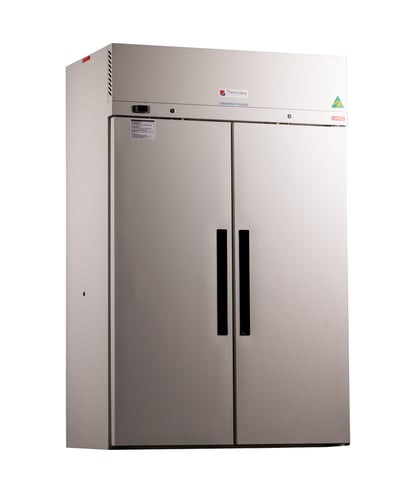Laboratory freezers play a vital role in scientific and medical fields, particularly those capable of maintaining temperatures as low as -30°C. These specialised units are designed to preserve and store sensitive materials, ensuring their stability and usability for critical applications. Below, we explore some of the key uses of laboratory freezers set to -30°C and why they are indispensable in research and healthcare.
1. Long-Term Biological Sample Preservation
Laboratory freezers at -30°C are commonly used to store biological specimens such as:
-
Blood plasma (See our Fresh Frozen Plasma (FFP) Freezers range for this type of product storage)
-
Serum
-
Tissue samples
-
Microorganisms
The subzero environment prevents biochemical degradation, microbial growth, and other factors that could compromise the integrity of these samples.
2. Vaccine Storage
Vaccines often require specific low-temperature conditions to maintain their efficacy. Freezers at -30°C are suitable for certain vaccines, offering a controlled environment to prevent spoilage and ensure that these life-saving treatments remain effective. See our range of Pharmacy Fridges for vaccine storage at 5°C.
3. Pharmaceutical Stability Testing
Pharmaceutical companies rely on laboratory freezers at -30°C for stability testing. This process assesses how medications and raw materials hold up under prolonged low-temperature conditions, ensuring their safety and efficacy over time. See also our Temperature and Humidity range for this type of product testing.
4. Industrial and Food Testing
In addition to healthcare, laboratory freezers are used in industrial and food testing applications, such as:
-
Preserving food samples for microbiological analysis
-
Conducting freeze-thaw stability tests on materials and ingredients
These tests help ensure that products meet stringent safety and quality standards.
5. Research and Development (R&D)
Laboratory freezers are essential in R&D settings, where they store temperature-sensitive chemicals, reagents, and samples. The ability to maintain a consistent -30°C environment allows researchers to focus on innovation without worrying about sample degradation.
6. Storage of Reference Materials
Reference materials used for calibration and quality control are often kept at -30°C. These materials must remain stable over extended periods to ensure accurate results in analytical procedures.
Thermoline’s Range of -30°C Laboratory Freezers
Thermoline offers a variety of laboratory freezers specifically designed to meet the demands of -30°C storage. Our freezers feature:
-
Temperature Stability: Advanced systems to maintain consistent subzero conditions.
-
Customisable Sizes: Models available in various capacities to suit different applications.
-
User-Friendly Controls: Intuitive interfaces for precise temperature management.
-
Energy Efficiency: Optimised designs to reduce energy consumption without compromising performance.
Why Choose a Thermoline Laboratory Freezer?
Thermoline’s laboratory freezers are built with durability and reliability in mind. With decades of experience in designing temperature-controlled solutions, we ensure that our products meet the highest standards required by researchers, healthcare providers, and industrial users.
Conclusion
Laboratory freezers capable of maintaining -30°C are essential tools across various scientific research and medical fields. Their ability to preserve sensitive materials, support research, and ensure product quality underscores their importance. If your work demands precise, reliable low-temperature storage, explore Thermoline’s range of laboratory freezers today.






